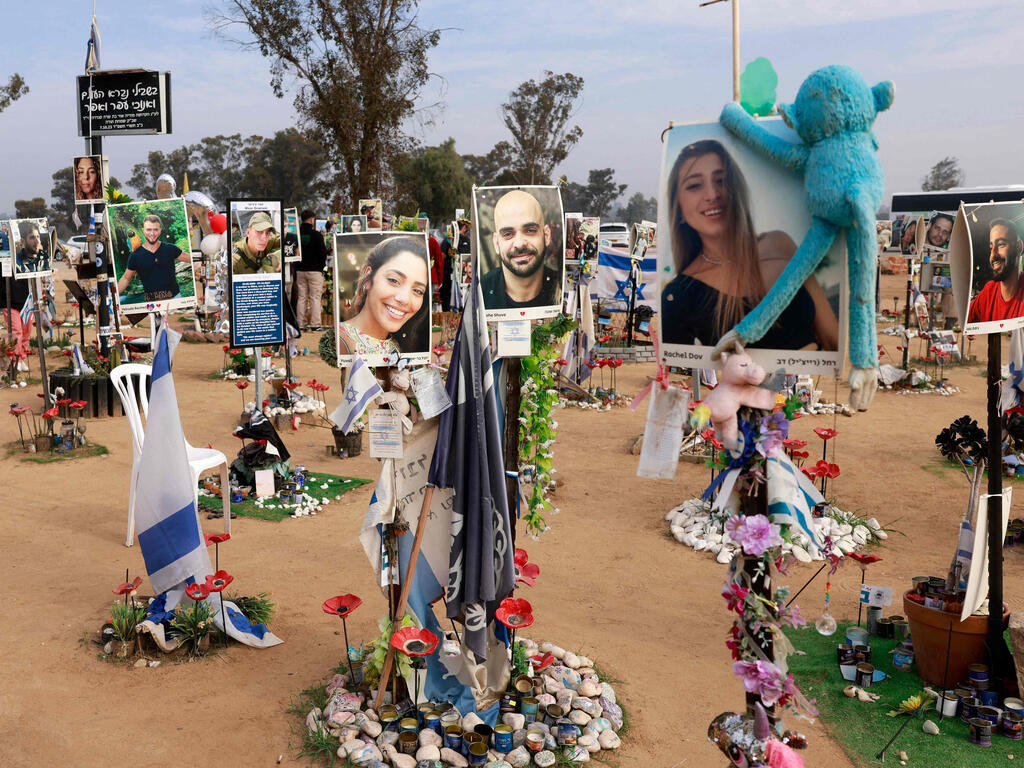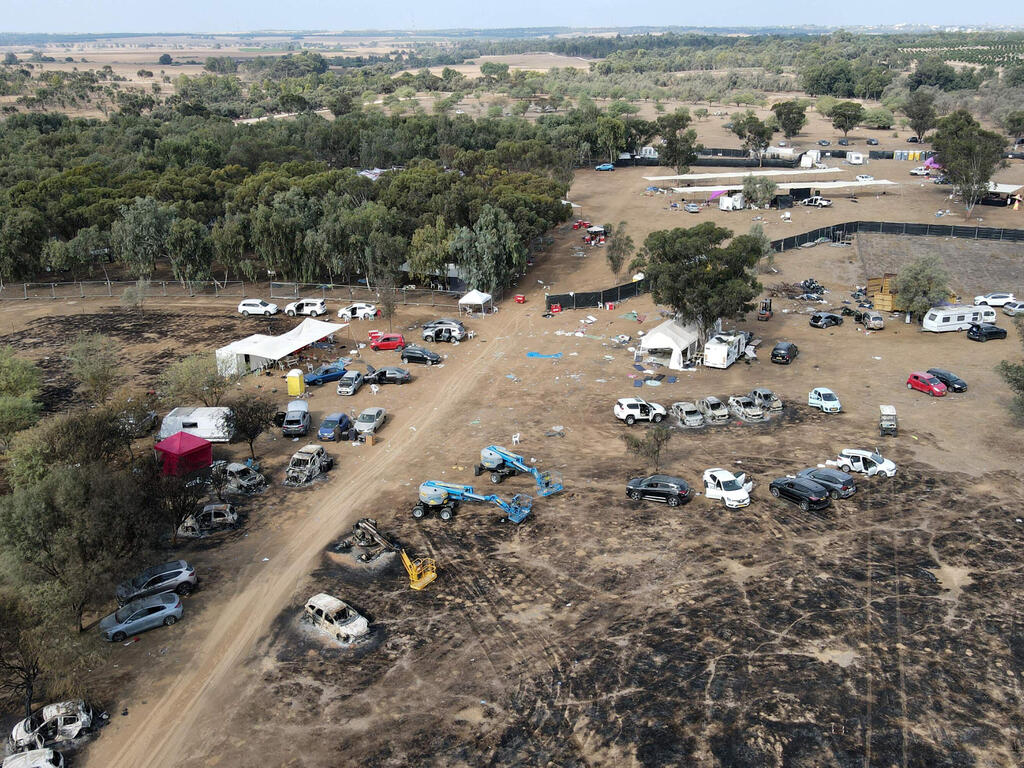Getting your Trinity Audio player ready...
The Israeli military on Thursday presented its findings from an internal investigation into the October 7 massacre at the Nova music festival to survivors of the attack, in an emotional and sometimes tense meeting that followed a similar briefing given to bereaved families.
Dozens of survivors gathered to hear the probe’s conclusions. At one point, a man shouted that the state had failed to take responsibility and described being held by a Hamas gunman with no assistance. Maj. Gen. Dan Goldfus, part of the team presenting the report, stepped off the stage to calm him. Unlike previous briefings, participants were permitted to bring mobile phones into the hall.
Raz Malka, 28, and Dor Rahamim, 29, two of the festival’s organizers, said they hoped the briefing would provide clarity. Malka said he learned more about the timeline of his escape. “Some missing parts came together,” he said.
“Many families lost the most precious people in their lives that day. They’ll spend the rest of their lives looking for someone to blame—but it won’t bring them back,” Malka said. “Every time we talk about that day, something gets stirred up. It changed our lives.”
Rahamim said the briefing filled in key gaps for him and offered an organized overview of the victims. “The military began by acknowledging its failure and admitted things that weren’t done, which contributed to what happened,” he said. “It brings a bit of relief. Others still need to take responsibility—and they know who they are.”
He added that the emotional impact remains overwhelming. “Hearing the timeline again just knocks the wind out of you,” he said. “We’re still looking for answers—for ourselves and for the friends we lost. We’re trying to find our way forward. We lost dozens of friends—some I personally invited to the party.”
Also attending were Tel Aviv residents Romi Harari, 24, and Noa Harush, 25. Harari said she was prepared for a difficult meeting. “There was nothing new that I didn’t already know through the media or the Nova community,” she said. “But it was handled with sensitivity and openness. No new answers changed our views.”
Harush said it was the first time she had allowed herself to engage with the details. “I’ve kept my distance from anything related to that day,” she said. “This was all new to me. They admitted their failure and kept repeating it throughout the briefing. But they don’t seem to realize that it goes beyond just saying ‘we failed.’ There were mistakes at every stage.”
“They took responsibility, but it doesn’t bring comfort,” she said. “My friends were murdered. Some are still being held hostage. I didn’t find any solace in it.”
Harari said it was the first time she felt seen by the state. “I’m not angry, but we waited for someone official to acknowledge us. Until now, only the Nova community was there for us. I’m not looking for answers—just recognition.”
Get the Ynetnews app on your smartphone: Google Play: https://bit.ly/4eJ37pE | Apple App Store: https://bit.ly/3ZL7iNv
Harush added: “We were all sitting in one room, and people were breaking down. I understand them. Still, I’m hesitant to say I’m angry. I want to believe the system will learn something from this.”
Separately, survivor Raz Cohen told Ynetnews in an interview that he did not attend the briefing because he had not known about it. Even if he had, he said, he likely would not have gone.
“What I already know is enough for me,” he said. “I honestly don’t want to hear more. I’m dealing with what I already know and don’t want to add more to it.”
“I want there to be justice,” he added, “but diving into the details of who did what and why won’t help me. I don’t want to go through it again. I just want to keep living my life as it is, without more drama.”



